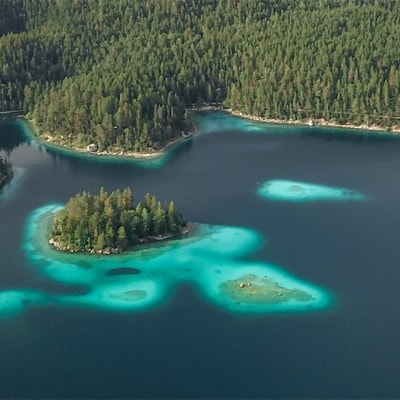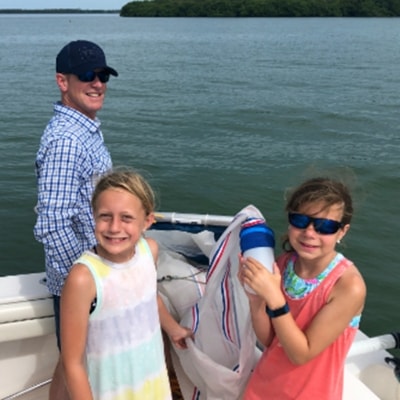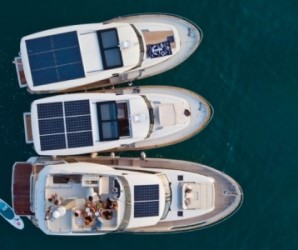SeaKeepers Approach
Recognizing boating's environmental impact, The International SeaKeepers Society emphasizes sustainable practices and greener options. Through behavioral shifts, vessel owners can wield substantial influence. Educating owners about their role in the environment is pivotal, especially as global interest in leisure boating grows. Now is the moment to commit to tangible change and shape a more eco-conscious future.
The Purpose
Explore top-notch vessel management, sustainable choices, and impactful practices with the Green Marine Program. Our Sustainability Kit equips you with strategic decision-making tools for eco-friendly boating, while "A Green Guide to Boating" offers comprehensive advice for greener practices. Take the lead in reducing your footprint and creating positive change through simple, collective actions. Join us on the path of Green Boating excellence!
We are glad you have arrived here to learn more and begin by understanding how each of us is a contributor to the problem.
Carbon Offsetting & How You Can Help
The International SeaKeepers Society supports carbon offsetting as an important first step in measuring and mitigating the carbon footprint of the yachting community, while also advocating for renewable energy projects and carbon removal technologies. While the long-term health of the ocean demands that we prioritize carbon removal strategies beyond offsetting alone, we believe it plays a vital role in addressing emissions as a broader commitment to environmental sustainability. We encourage yacht owners to embrace both carbon offsetting and innovative approaches to help restore balance to the planet’s carbon cycle.
Start by considering your individual impact. How do you, your family, or your business produce excess carbon emissions? Using the tools and links provided on this page, make a plan to reduce your emissions and don’t be afraid to start small. By sharing your progress with friends, family and colleagues, you can increase your overall impact. Small actions, such as reducing single-use plastic usage or investing in renewable energy for your home, can have large impacts when we all work together.
Who is Taking the Lead?
Making a difference in our environmental impact is not just about changing our behaviors or community effort but also includes the use of new technologies and improved methodologies. In this section we highlight industry partners who are making strides in protecting our oceans through their innovations.
Suzuki Marine
Throughout the last decade, Suzuki has committed to being more than just an engine manufacturer. In addition to their breaking-edge technology development, Suzuki’s commitment to a better world has taken the form of the CLEAN OCEAN PROJECT. They have engaged over 9,000 people in their campaign to “Clean-Up the World” and have led beach cleanups globally since 2011.
By switching the packaging of their marine genuine parts from plastic to eco-friendly materials like paper, they have positioned the industry closer to eradicating the 2.3 tons of unnecessary plastic packaging used per year. However, Suzuki is not just mitigating the source of plastic pollution – they are leading the way in how we clean up the plastic mess that is already in the ocean. Attaching the simple Micro-Plastic Collecting System to an Outboard Motor can convert what would be just a simple cruise through the Intracoastal into a marine micro-plastic cleanup. Continue reading, click here.
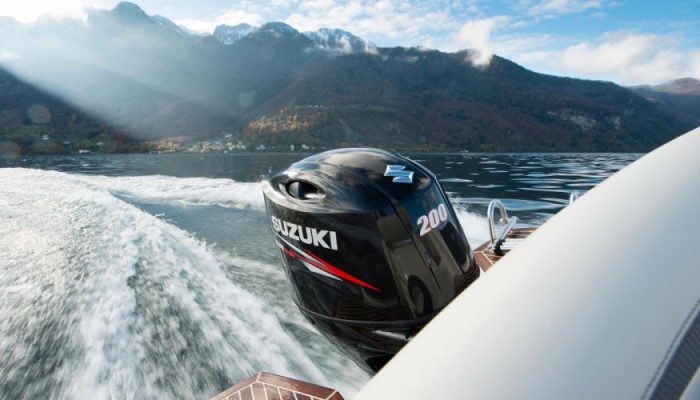
Archives
1 Hotel South Beach
1 Hotel South Beach is more than a hotel. In their words, it is a philosophy and a platform for change. And platform for change they are; their utilization of nature as the compass guiding their every move isn’t just limited to their words, but is manifested in their actions through the standards they set, goals they achieve, partnerships they establish and the sustainable programs they implement. 1 Hotel South Beach - where the boundaries between luxury and the natural world are blurred by their biophilic architecture, and eco-conscious products and practices - shows that businesses can operate at large capacity in environmentally aware ways, and do so successfully. 1 Hotel champions the use of intelligent energy and emissions tracking technology, which has led to them becoming 100% Certified Carbon Neutral for Scope 1,2, and 3 emissions, and to date they have offset 19,171 tons of CO2, in addition to achieving a LEED Silver rating. The goal of mitigating climate change permeates all of 1 Hotel South Beach’s departments, and they are on track to realizing their goal of zero waste operations. Having partnered with Compost for Life Miami, they successfully eliminate food scrap waste, and their chefs locally source their menu items and nurture on site organic gardens. In their building design and furniture selections they prioritize native and reclaimed materials, the avoidance of use plastics, and reusable and recyclable consumer goods. 1 Hotel South Beach not only sets the industry standard for sustainable business in hospitality, but sets the bar high.
Since early 2022, SeaKeepers has had the privilege of collaborating with 1 Hotel South Beach to offer beach cleanups for the hotel’s beach front, effectively tackling both SeaKeepers’ mission of keeping trash out of the ocean, and 1 Hotel’s aim to spark conversation about the environment and our role in protecting it. So far with SeaKeepers, 1 Hotel South Beach has cleared 145 pounds of trash and marine debris off of its beachfront and engaged almost 50 people in conservation conversation. We look forward to further collaboration and much more cleaning! To take a look at our most recent cleanup with 1 Hotel South Beach, here.To learn more about 1 Hotel South Beach, visit their website here.
Yacht Sales International
Yacht Sales International is a premier licensed and bonded yacht brokerage headquartered in Fort Lauderdale, Florida. They represent buyers and sellers of the finest motor yachts and powerboats available. Their incredible Greenline Hybrid is the powerful answer to the concern of the environment, as it uses up to four times less fossil fuel than a planning powerboat in similar conditions. Not only does this innovation reduce fuel consumption, but it also allows efficient electric propulsion using power supplied by the battery and solar power. Designed and built by people who know more about volume boat manufacture than anybody else in the world. Greenline Hybrid is more cost-effective to buy and use than any comparable boat, thereby offering incredible value for money. Learn more, here.
How Can You Support SeaKeepers Efforts?
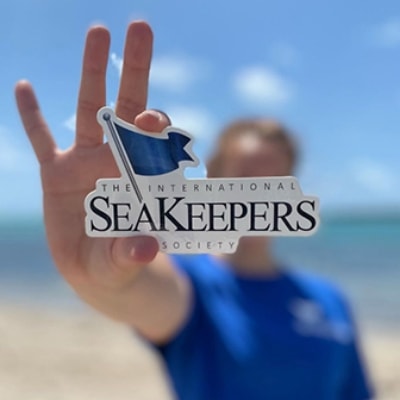
Join Our Membership Program
Neutralize your carbon footprint by becoming a SeaKeepers Member at our Carbon Offset Level of giving.
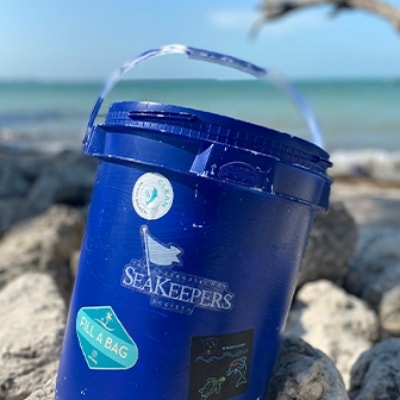
Sponsor a Beach Cleanup
Support our local shoreline and underwater cleanups by funding our sustainable materials.
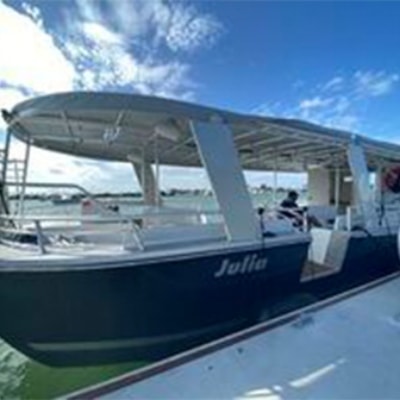
Become a DISCOVERY Yacht
Integrate our Green Boating Guide tips and become a DISCOVERY Yacht in our fleet and support marine science.

Donate Your Vessel
Help us fund our DISCOVERY Yacht Program and donate your vessel to our Yacht Donation Program.
Understanding It All FAQs
By simple definition, Climate Change is a long-term change in the average weather patterns of the Earth’s local, regional, and global climates. Climate Change, which includes global warming, refers to the Earth’s rising surface temperature and the effects of warming that are happening to our planet.
Observable impacts of Climate Change include sea level rise, ocean acidification, rising sea temperatures and melting polar ice, dramatic fluctuations in local weather patterns, and increased natural disasters.
Climate Change is primarily driven by human activities, particularly fossil fuel burning which increases heat-trapping greenhouse gas levels in the Earth’s atmosphere, acting as a blanket wrapped around the Earth. Since the industrial revolution, atmospheric carbon dioxide levels have risen dramatically as humans burn fossil fuels that release carbon dioxide gas. Heat from the sun is reflected off the world’s oceans and into Earth’s atmosphere, where the build-up of greenhouse gases, including carbon dioxide, prevent the heat’s escape.
For millennia prior to the 1900s, the atmosphere did not see carbon dioxide concentrations greater than 300 parts per million - now, levels are well over 400. The Earth’s temperature has risen about 2°F in response.
Every day, our activities directly and indirectly result in the emission of greenhouse gases. Your “carbon footprint” refers to the amount of greenhouse gases, including carbon dioxide, that are likely produced from your lifestyle and activities. Greenhouse gases can be emitted through land clearance and the production and consumption of food, fuels, manufactured goods, materials, wood, roads, buildings, transportation, and other services. Carbon footprints are usually measured in equivalent tons of CO2.
Online carbon footprint calculators allow you to determine your carbon footprint based on many aspects of your lifestyle, including your home, your vehicle, your travel and even your diet. These calculators use known average emissions for each factor to determine how much carbon you are likely emitting during the course of a year. Interested in determining your carbon footprint? See our Carbon Footprint Calculator for Yacht Owners above.
Many companies sell carbon credits that fund various projects, and therefore it is important to do your research into the projects being funded when selecting a carbon offset provider. There are several carbon offset providers that support the advancement of carbon reducing technology and research, effectively offsetting carbon for each carbon credit purchased. To learn more about how to ensure your carbon credits are being used effectively, read our “Criteria for the Evaluation of a Carbon Offset Provider” section below.
It is often a good idea to work with someone who has a detailed understanding of the sectors or project types being considered, which in some cases could involve enlisting multiple experts. The goal is to utilize the services of consultants or trusted retailers to examine projects, navigate different options, and put together a portfolio of offset credits that meet a buyer’s goal (with respect to location, project type, offset quality, and co-benefits, for example).
When choosing a Carbon Offset Provider, consider:
- Are their projects all third-party verified and validated? Are projects accredited by internationally recognized Program Stands, such as CDM, Gold Standard or VCS, Plan Vivo, etc.
- What type of projects do they offer in their portfolio? (e.g., wind farm, methane recovery, etc.)
- Where are the carbon offset projects located?
- What portion of the carbon credit price is allocated to the project developers?
- Does the project reduce greenhouse gas emissions or remove carbon from the atmosphere or destroy the greenhouse gas?
- How do they ensure that the greenhouse gas reductions that the carbon offsets represent were quantified accurately?
- What steps have they taken to ensure that the carbon offsets that are selling are additional?
- How do they ‘retire’ credits? Do they use a publicly accessible registry to track and retire your credits?
- Do their projects go beyond carbon offsetting? Every project has huge potential to provide community benefits and biodiversity protection. Find out which of their projects provide employment opportunities, health care benefits, education, and the protection of certain species. These impacts are often called co-benefits and checking that the projects align with the UNs Sustainable Development Goals can be a good place to start.
- What is their experience in carbon offsetting? Many organizations are new to the field of carbon offsetting and may not have the technical expertise and established relationships when it comes to offsetting.
- Are they transparent? A reputable organization will have information about their projects, methodologies, and quality assurance protocols readily accessible on their website and be willing to answer your questions. If not, that is a good clue that they may be trying to hide something. Check that the methodologies used by the organization are clearly defined and any questions you have about your support are answered with clarity.
- If they are selling credits that will be created in the future (i.e., through forward crediting), what mechanisms (insurance or otherwise) are in place to ensure the offsets will actually be delivered?
- What percentage of the portfolio (by tons of CO2 e) is made up of offsets from tree planting or agricultural soils projects? If it is a significant percentage (more than 20% of your portfolio), how do they address permanence risks?
- What is the organization doing to educate consumers about climate change and the need for government policy to deal with it?
- Are they a member of any alliance which has a Code of Best Practice that members must adhere to?



